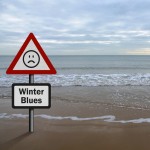
Seasonal affective disorder (winter depression) is a type of depression that recurs in the autumn and lasts until the spring. It is similar to regular depression except sufferers are usually very tired and have an increase in their appetite. It is more common in countries with few daylight hours in winter.
People with seasonal affective disorder may be offered a range of treatments included antidepressants, talking treatments or light therapy.
This new Cochrane review set out to assess the efficacy and safety of second generation antidepressants for the treatment of seasonal affective disorder in adults in comparison with placebo, light therapy, other second generation antidepressants or psychotherapy.
The authors conducted a systematic search of the usual databases and trials registers but found very little useful evidence to include in their review. For efficacy, they included three randomised trials of between five and eight weeks duration with a total of 204 participants. For adverse effects, they included two randomised trials and three observational (non-randomised) studies of five to eight weeks duration with a total of 225 participants.
Here’s what they found:
- One small trial (with 68 participants) showed that fluoxetine was not significantly more effective than placebo in achieving clinical response (risk ratio (RR) 1.62, 95% confidence interval (CI) 0.92 to 2.83). The number of adverse effects were similar between the two groups
- A meta-analysis of two small trials (with a total of 136 participants) showed fluoxetine and light therapy to be approximately equal in treating seasonal depression: RR of response 0.98 (95% CI 0.77 to 1.24), RR of remission 0.81 (95% CI 0.39 to 1.71). The number of adverse effects was similar in both groups
The reviewers concluded:
The lack of available evidence precludes the ability to draw any overall conclusions on the use of second generation antidepressants for seasonal affective disorder. Further larger RCTs are required to expand and strengthen the evidence base on this topic, and should also include comparisons with psychotherapy and other second generation antidepressants.
Thaler K, Delivuk M, Chapman A, Gaynes BN, Kaminski A, Gartlehner G. Second-generation antidepressants for seasonal affective disorder. Cochrane Database of Systematic Reviews 2011, Issue 12. Art. No.: CD008591. DOI: 10.1002/14651858.CD008591.pub2.

No
Do you have the paper??? I need it for a class and I couldn’t find it free :P
Sp
UNAM
Hi SP,
The full-text link for this Cochrane review is:
http://onlinelibrary.wiley.com/doi/10.1002/14651858.CD008591.pub2/full
This works for me from my woodland setting here in the United Elfdom, so I’m keeping my fingers crossed that it works for you too.
Cheers,
The Mental Elf